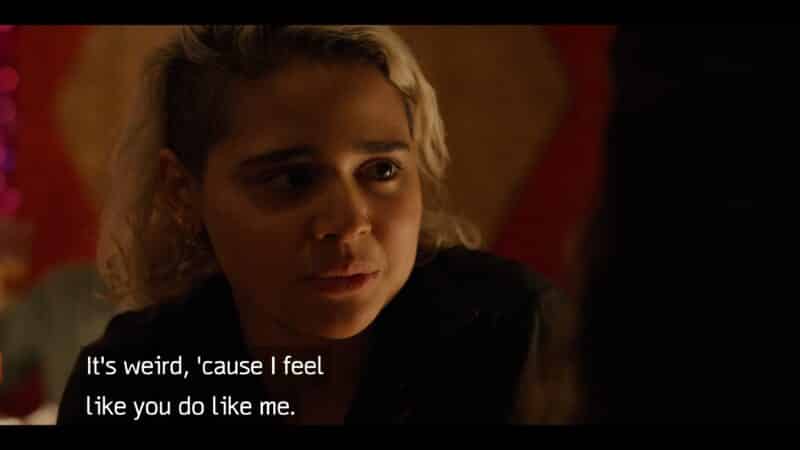Genera+ion: Season 1 – Review/ Summary (with Spoilers)
Genera+ion, while flawed, more than makes up for its low points by featuring queer people of color who bring a wealth of diverse stories.
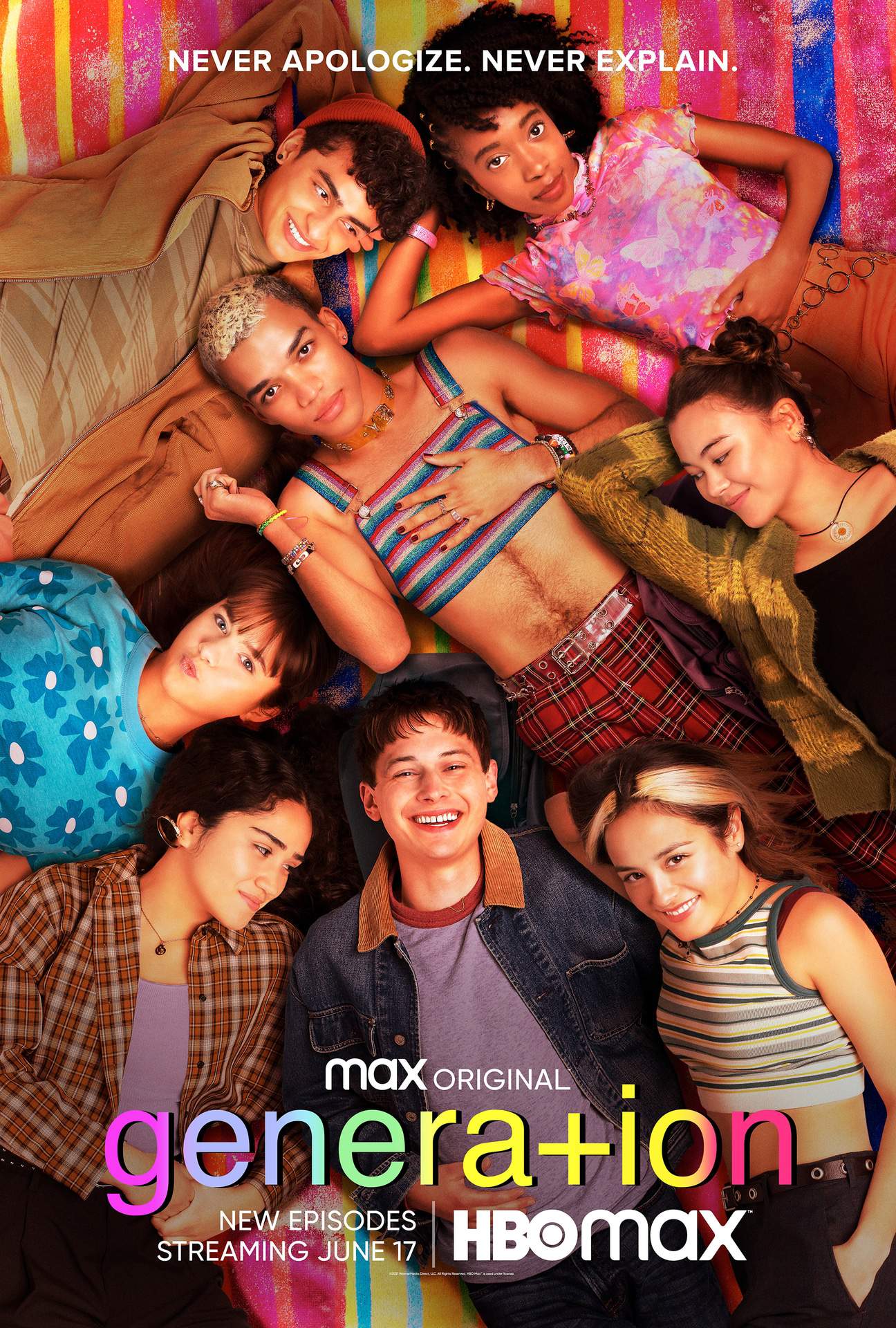
Spoiler Alert: This summary and review contains spoilers.
Additionally, some images and text may include affiliate links, meaning we may earn a commission or receive products if you make a purchase.
Genera+ion, while flawed, more than makes up for its low points by featuring queer people of color who bring a wealth of diverse stories.
| Season Premiere | 3/11/2021 |
| Season Finale | 7/8/2021 |
| Episodes | 16 |
| Network | HBO Max |
| Created By | Zelda Barnz, Daniel Barnz |
| Genre(s) | Comedy, Drama, Romance, Young Adult, LGBT, Family |
| Noted Cast | |
| Chester | Justice Smith |
| Greta | Haley Sanchez |
| Riley | Chase Sui Wonders |
| Ana | Nava Mau |
| Nathan | Uly Schlesinger |
| Naomi | Chloe East |
| Megan | Martha Plimpton |
| Delilah | Lukita Maxwell |
| Sam | Nathan Stewart-Jarrett |
| Arianna | Nathanya Alexander |
| J | Sydney Mae Diaz |
This content contains pertinent spoilers.
Season Summary
In and around Anaheim, California, you’ll find a group of teens navigating sexuality, dysfunctional families, and unlike some of the shows similar to Genera+ion, while drugs, alcohol, and partying are part of their routines, there are far more attempts to have the difficult conversations most shows hold until their season finale.
Review
Highlights
Its LGBT Characters
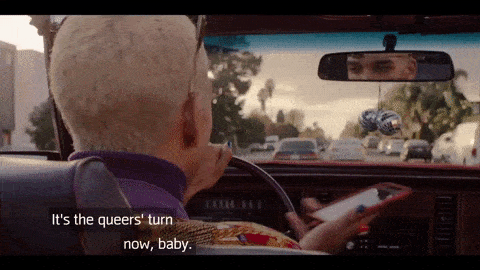
The main selling point of Genera+ion is its LGBT+ characters. Be it Chester, Luz, Riley, Greta, Ana, among many others, this is what makes the show watchable. Breaking it down, you have Riley, Greta, and Luz, in a love triangle that deals with Riley only knowing hookup culture, so Greta potentially loving her is a struggle.
Then for Greta, she tries to understand her sexuality and her romantic interest with Riley, who is emotionally inconsistent and tries to introduce love as she understands it. Which, when you add Luz to the mix? Someone firm in their sexuality, admires Greta, and gets along with her family? It creates the kind of love triangle which pulls you in all directions, and while you get maybe being single should be an option, you see the joy Greta could have with both that is so well deserved.
This leads us to speak of the three as individuals. Of them, we learn the least amount about Luz, but the swag makes you want to learn more, especially as she is reintroduced in the second half of the season. In the first half, she is just a random lesbian person Riley hooks up with, but she shows herself as a jock with a heart of gold in the second half. One who has tried to deal with people unsure of themselves and has only been left heartbroken trying to wait out them becoming sure of who they are. And in her pursuit of love, there is the kind of struggle which makes you feel bad for her.

Though love, in general, is a struggle and even outside of love, stability is also a problem. Such is the case for Riley, whose parents are divorcing, her mother is trying to get in touch with her inner child, and Riley is just trying to escape the madness. Oh, and while dealing with her parents and her dad’s new child bride, there is her anxiety flaring up, her situationship with Greta, and her budding work as a photographer. Something which is less of focus in the second half of the season but was part of her claim to fame in the first half.
This leaves Greta and her aunt Ana. Greta has a rare coming-of-age story due to her path towards confirming her sexuality. But, on top of that, she is probably one of the most ADORABLE characters you have ever seen on a TV show, who doesn’t eventually become problematic. Then, when it comes to Ana? She is an utter scene-stealer. On top of that, while she is a trans woman, as is the actress, the show doesn’t reveal Ana is until the back end of the show. So like the actor who plays J, you are left to assume a trans person is playing someone cis.
Switching to the boys, there is Bo, Sam, and Chester, and together they give the diversity gay male representation needs. We got Chester, who is flamboyant but also a jock and one of the most brilliant people of the larger friend group. Alongside him is Sam, the high school counselor who is out but not as unabashed as Chester. If anything, Sam brings you that calm, cool, and collected type who we don’t often see on the more mainstream shows, which give us gay characters and usually only show up when the show is focused just on the LGBT+ community.
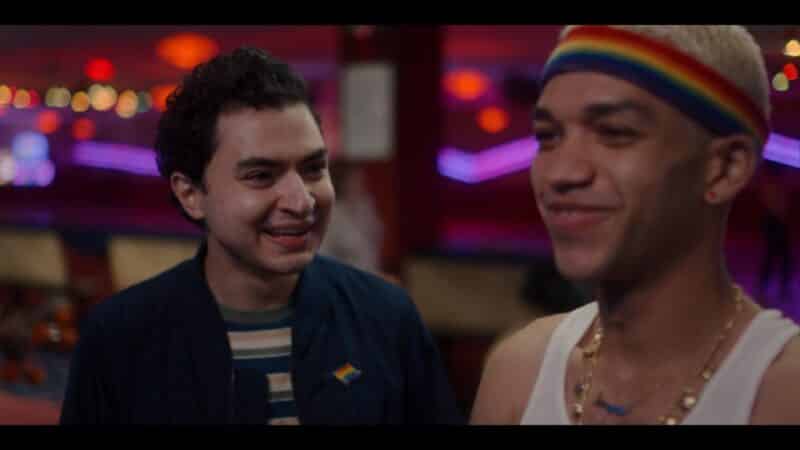
Which leaves Bo, who is Chester’s boyfriend that does give some Sam vibes. But while Chester is mixed, and Sam is Black, Bo is Egyptian, and while the show, unfortunately, doesn’t dive into his home life and how his family feels about his sexuality, he is still a welcomed part of this shows excellent LGBT+ representation.
It Has Half-Hour Episodes
Being that this show is on HBO Max, like most of their programs, they release 2 to 3 episodes at a time. So, while a half-hour, technically, you get an hour to an hour and a half every week. However, even with noting you get more than an hour of content every week, each individual episode has so much going on that it really pushes you to wonder why more dramas don’t break the rules and do a half-hour?
The Show’s Diversity
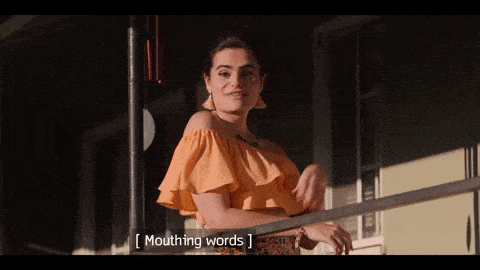
Despite Genera+ion doing as most modern shows do and make the conservative character, Megan, villainess, the show has A+ level diversity beyond that negative depiction. Just as you have Nathan, who lives in a giant house, as does Riley, there is Ana and Greta, who live in an apartment, and perhaps Chester too. As noted above, regarding the LGBT+ community, we got lesbians, gay, trans, asexuals, and bisexuals as well. Heck, they even take it to the next level by having a homo-romantic asexual.
Then, ethnic-wise, we got nearly everyone covered. There are Black characters, whites, Latinos, Asians, and the only thing missing is someone indigenous. Though with the upcoming Reservoir Dogs, America’s indigenous population will get their moment in the sun that hopefully doesn’t set when the show ends.
Low Points
Megan, Nathan, Naomi, and Their Drama
Nathan, Naomi, and their momma Megan have the least appealing storylines in the series. As the conservative parent, Megan is part of Nathan’s drama, regarding him trying to be extra gay in front of her, just to make her uncomfortable. And even when you think Megan may have a heart, when it comes to her bonding with Riley, that is short-lived as you see Megan use Riley’s anxiety to fish for information.
Focusing on Nathan, though, he and Naomi very much feel like Trojan Horses that were sold since a story about various LGBT+ people of color wouldn’t have gotten the greenlight. Hence, Nathan’s stories often feel like they aren’t essential to the show. Be it his relationship to Arianna, his lusting after Chester, or his sexual relations with his sister’s boyfriend. All that he brings is drama that props himself up but gives very little benefit to any other character.
But Naomi is worse. Her entire storyline either has her angry at Nathan or else struggling for relevancy and seemingly attached to other characters who don’t have much going on.
Wishing We Got More Out Of Some Characters
Of these characters, for the most part, it is the straight ones who it seems we are kept on a need-to-know basis with. This isn’t to say Luz becomes fully fleshed out or Bo, but when it comes to anyone who isn’t even bi? Like Delilah, Cooper, J, Wilson, and Arianna? We’re kept on a need-to-know basis, or, even worse, information about them is just dropped, and if you weren’t paying attention, you just wouldn’t know because there is no follow-up.
On The Fence
How It Uses Perspectives To Change The Narrative
Genera+ion handles its narrative by presenting three or so characters in an episode, focusing on them for two to three episodes, and then switching. But, the way it does it in the first episode is usually by focusing on one day, with each other the primary characters showing how their specific day went. But from there, it becomes more general and about everyone as it tapers off.
This required an adjustment because, when the show first began, seeing everyone’s perspective of a day gave Five Points, if not Skins vibes and helped lure away perceptions that this would be Euphoria-Lite. But with not maintaining that and trying multiple ways to tell a story it certainly didn’t do Genera+ion any favors, but you get adjusted.
Overall
Rating: Positive (Watch This)
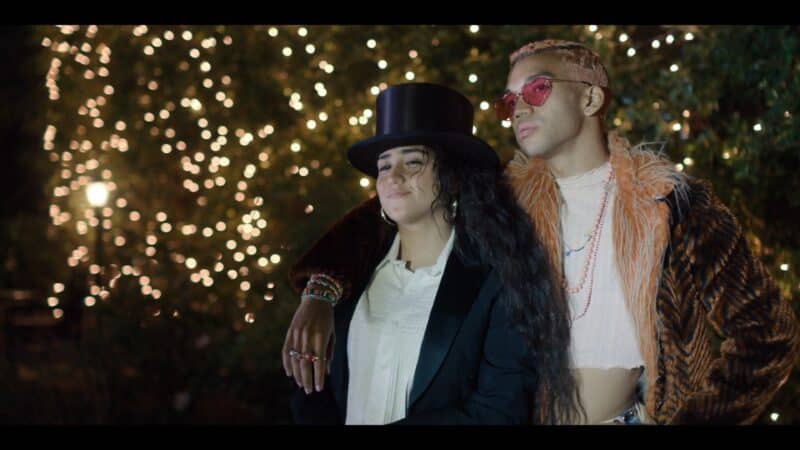
Genera+ion definitely deserves its critics, but I think that mostly stems from the show being on HBO Max, the expectations Euphoria has given people, and the show, frankly, being a bit over the top without necessarily jumping the shark. But, considering the diversity of its cast, especially its LGBT+ characters, who all are people of color, and giving them the ups and downs of romance, family, and friendship, without there being some sort of life-threatening target on their back, that compensates heavily for Genera+ion’s flaws. Hence, by the skin of its teeth, being rated positive.
TV Shows We’re Covering This Season
Images used for editorial and commentary purposes. All rights remain with their respective copyright holders.

